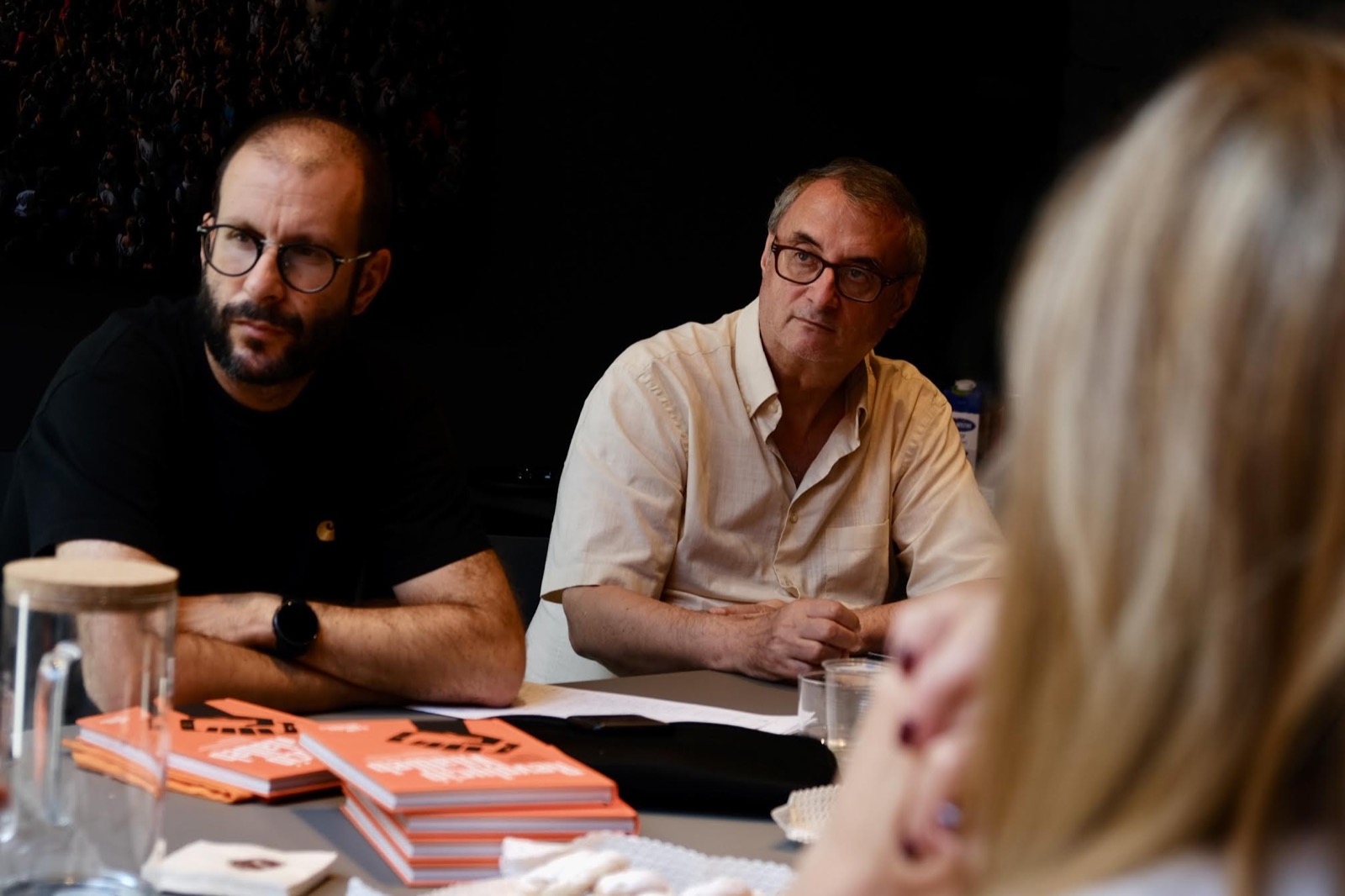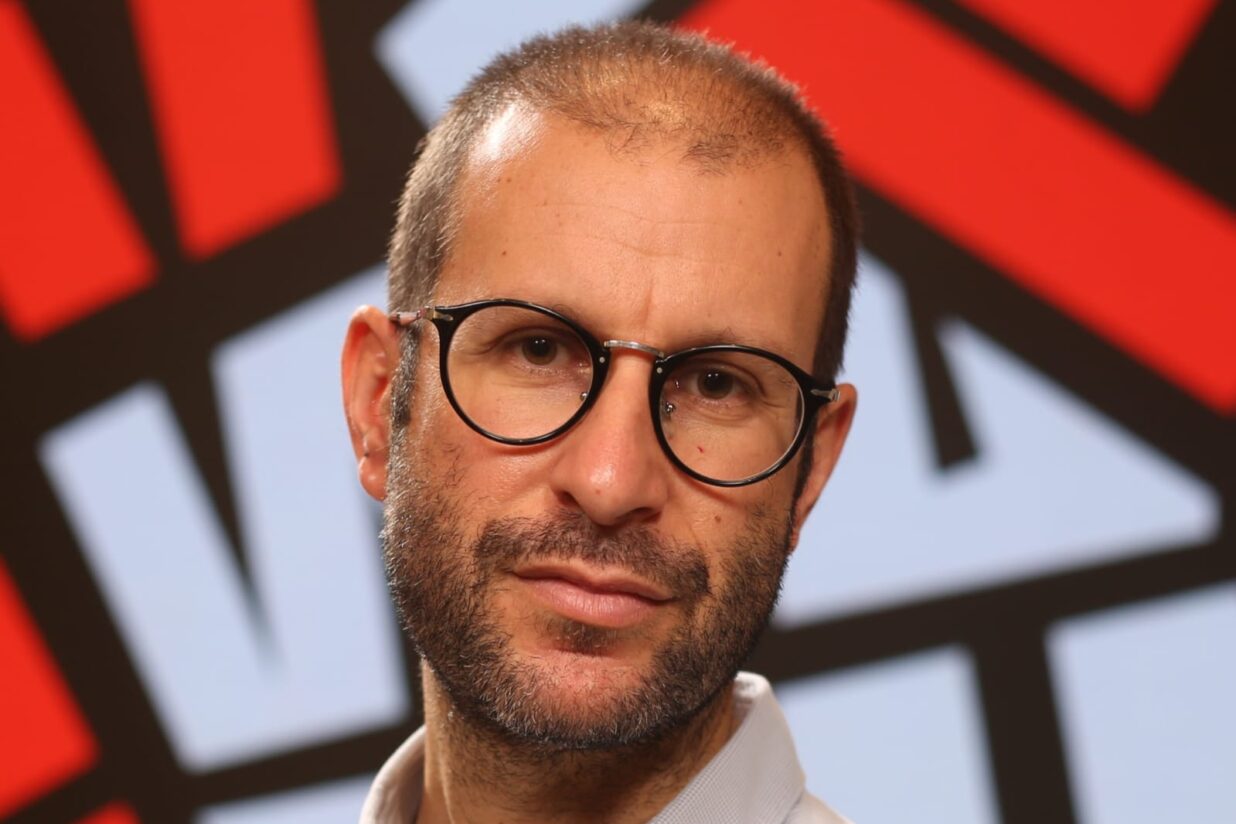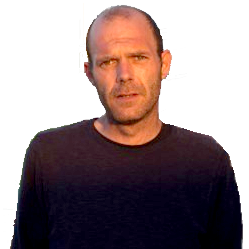10.06.2024 - 21:40
The European elections on Sunday shook the continent due to the rise of far-right parties. Parties that were marginal or did not even exist a few years ago secured nearly a quarter of the votes the day before yesterday. In France, Italy, and Austria, they were the leading force, and in Germany, the second. Although the conservatives, social democrats, and European liberals may end up allying to govern, and they have enough votes, the far-right had such strong results that it is alarming.
Yesterday, VilaWeb interviewed Francesco Cancellato, the Italian journalist who directs the prestigious newspaper Fanpage, with which VilaWeb has established relationships and affinities. Cancellato is the author of the book Nel continente nero (Rizzoli, 2024), a work that describes the European far-right. He visited seven countries over a year (Germany, Spain, France, Hungary, Italy, Poland, and Sweden), spoke with experts, and attended far-right events to profile a phenomenon he outlined yesterday for VilaWeb in a Zoom conversation.
— I would like to divide the interview into two parts. The first would be the headlines you would highlight from yesterday’s elections. And then I would like to put it in context, thanks to your book. What would be the headline of yesterday’s elections?
— The headline is that the far-right has become strong in the heart of Europe. There is a far-right government in Italy, where the party doubled its votes. And a far-right party that is the leading force throughout France. And a far-right party that is the second largest in Germany. So, the far-right is strong in Italy, France, and Germany, three of the founders of Europe. France and Germany, especially, are the two pillars on which the idea of the European Union is based. The far-right is so strong in the heart of Europe! I think it’s the first time we see it so clearly, but perhaps it was already happening and developing for years.
— A year ago, you wrote a book about the far-right in Europe. What motivated you to do so?
— I had the intuition that something was about to happen. About a year ago, Manfred Weber, during Pope Benedict XVI’s funeral, met with Giorgia Meloni. It was quite strange that in a period when the socialists were having many problems with the Qatargate, they would meet. And I said: this could be the occasion when every frontier, every barrier breaks and the far-right can enter the palace of Brussels. Or even rule in many countries. Something was about to change. Something is changing right now. Now the far-right has an enormous amount of votes and cultural hegemony on the continent.
— Cultural hegemony? What do you mean?
— When we talk about migrants, we always refer to security problems. When we say we must save the planet from climate change, we add that we must save the economy. We must defend the traditional family. Man is man, woman is woman. These ideas are very popular in our countries. They have made these ideas seem like common sense. And now, with votes and strength, they can align with the establishment and come to power. They are normalized. Nel Continente Nero is a year-long journey through seven countries.
— And what are the common characteristics of the far-right in the seven countries you visited?
— They are against sexual and reproductive rights, against gays. They share Islamophobia. They share identitarianism (“If you have a European identity, you have certain rights; if you don’t have a European identity, you don’t have those rights). They also deny climate change. They are against the UN or the European Union. But I think the most important is the peculiar way they try to put nationalism above everything. There is no universalism, they say, so we can do whatever we please in our countries. They see the European Union as a hindrance. You cannot trample on the rule of law in your country. You cannot discriminate against gay people in your country. You cannot go against press freedom in your country. You can’t, you can’t, you can’t. But if you weaken EU institutions, then you can. The European Union is weak, and they want to make it weaker. And to achieve this goal, they have converged with some forces outside Europe. The main one, Russia.
— You have talked a lot about the links between Russia and Italy. What are these links?
— They are mainly links with Salvini, rather than with Meloni. When Salvini became leader in 2013, the Russian oligarch Konstantin Malofeev attended the Lega congress and greeted. Salvini went to Russia nine times and said that Putin’s democracy was better than European democracy and that sanctions against Russia should be stopped. He signed a political agreement between Putin’s party and Lega. Lega had many votes but little money and needed it. There was a famous conversation between Putin’s people and Lega’s people; Malofeev’s people and Lega’s people, where they talked about money for Lega.
— And who else funds the far-right in Europe?
— There are many religious lobbies and climate change denial lobbies. Journalists from Open Democracy discovered the way to finance Vox and more parties through CitizenGo. “You should give us the money, to keep you anonymous” was the idea. There is another large foundation in Poland, linked to a major foundation in Brazil, TLP. Or financiers linked to ultrachristianity who founded El Yunque, which has links with Vox. We also saw a link between the American far-right and confessional parties in Europe. There are legal organizations like the European Center for Law and Justice or the American Center for Law and Justice that provide legal support and advice to people linked with hate speech. These organizations are often funded by the fossil fuel industry. I want to remember that the AfD was the first political party in Germany to explicitly deny climate change in the German parliament. And the Hungarian economy’s oligarchs support Orbán and have a strong link with each other.

— You went to France, Spain, Sweden, Hungary, Poland, Germany, and Italy. Which country impressed you the most?
— The country that impressed me the most is Germany.
— Why?
— Because it is a country that experienced the most brutal dictatorship of the first half of the 20th century, which destroyed Europe. Since 2013 there has been no far-right presence in the German parliament. Now there is the AfD, which is one of the most radical groups in Europe and is growing a lot. The AfD is more radical in East Germany because it is dominated by the Der Flügel current, the neo-Nazi wing of the party. And in Saxony, Brandenburg, and Thuringia (where Der Flügel dominates), it has 40% or 30% of the votes. In September, they could elect the land president. Germany is the country where the rise of the far-right is most worrying and impactful. “The Green Party is our enemy, not the Social Democrats,” they say, because of climate change. The fight against climate change is the main fight of our era, and the main battleground for this fight is Germany. It was shocking for me to realize this both prospectively and historically. Historically because they are neo-Nazis, and prospectively because they are fighting against humanity’s main struggle.
— Today I saw a map of the AfD votes in Germany. Why are they so strong in the East compared to the West?
— Because in the East, they see the other parties as colonialists, as parties of the West. The AfD has a strong far-right DNA, but even stronger East Germany DNA. Angela Merkel said in 2015: “We can integrate everyone, for example, people from Afghanistan.” Someone, I don’t remember the author, published a book saying: “First integrate the East Germans.” They feel excluded from Germany, and rejected by Germany. In the East, the AfD is perceived as a kind of native party.
— What would you say to someone who says these parties do not use violence and do not want to stage a coup?
— I would say that even words are violence. I was in Spain, and I heard Santiago Abascal’s final rally. He said they wanted to have the power of fathers, and a patriarchal society, and said bad things against feminists, immigrants, and gays. Well, that is also violence. You don’t have to be violent with your hands or with weapons or with sticks to be violent. If you try to discriminate against people, that is also violence. And they don’t want to stage a coup. That’s true. But Hitler won elections. Orbán won elections. And somehow, Putin won elections, and Erdogan won elections. If you want to establish some kind of authoritarianism or some electoral autocracy (I can’t call it a dictatorship right now), you don’t need to stage a coup. It’s enough to win elections. And, of course, if Marine Le Pen won the presidential elections in France, she wouldn’t have the power to build an autocracy because of the system. But it’s worrying because they have ideas and friends who are autocrats, not democratic leaders, such as Viktor Orbán, who is very close to Trump, Meloni, and Abascal and all these people. And they have friends who say that Orbán is a role model. This is a statement of intent. If someone asks me: why do you say they are dangerous? Because they say they are dangerous. They say it. They tell you what they want to do.
— Some say Meloni is one thing, and the Germans are another. Do you agree?
— I don’t agree. If I ask you who is more right-wing, Orbán or Wilders? Vox or Salvini’s Lega? If they were two different political offers, you would have two options. But the two supposed branches don’t compete. The norm is that in each country, one or the other is presented because basically, the offer is the same. Ideas about sexual and reproductive rights, climate change, Islamophobia, identity, and nationalism are basically the same. They want the Europe of nation-states. They all say the same thing.
— Finally: What do you think of the theory that says all these parties attract the votes of globalization’s losers?
— The situation is worsening for many people. They could become poorer, more insecure, and they feel nostalgic. The far-right gives them the power of nostalgia. They say the answer is in the past. We were great, now we’re not. Let’s go back! That is the power of the far-right right now.



